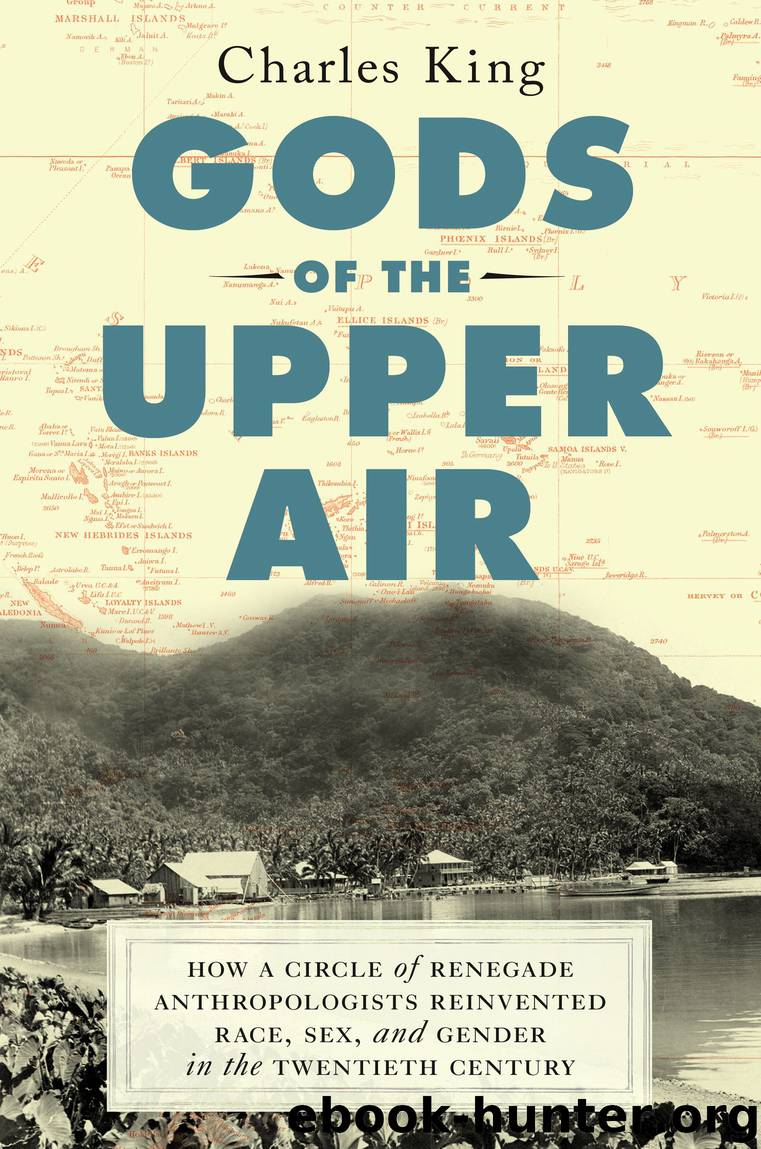Gods of the Upper Air by Charles King

Author:Charles King
Language: eng
Format: epub
Publisher: Knopf Doubleday Publishing Group
Published: 2019-08-05T16:00:00+00:00
Chapter Ten
INDIAN COUNTRY
While Hurston was making her way along the Gulf of Mexico and Mead and Fortune were planning new projects beyond Manus, Boas was more or less stuck in New York. He was by now an eminence: one of the acknowledged greats in anthropology and a public authority on race, inheritance, culture, world affairs, and virtually any subject that a newspaperman, museum director, or average citizen might raise. The responsibilities that came with his status meant that he would never again do the kind of fieldwork he had managed as a younger, more obscure scientist.
As many as twenty-five hundred letters flew off his desk each year, page upon page passing back and forth between New York and wherever his students, colleagues, and field agents happened to be, along with acceptances and regrets to editors, journalists, civic leaders, and foreign dignitaries. A parade of secretaries, usually drawn from among his graduate students, was kept busy sorting, typing, mailing, and filing the correspondence. The public relations department of Proctor & Gamble asked whether Boas might undertake a comparative study of “the utilitarian and aesthetic differences among the hands of various peoples.” A student at Brooklyn College wrote in to ask whether it was true, as his teacher had said, that “the Negro race was far inferior…to the White race…and that the brain size of the Negro is smaller than that of the normal White man.” “What your instructor told you is all nonsense,” Boas replied the next day. Did Negroes make better boxers because they matured faster than whites? inquired the sports editor of the New York Sun. There was no evidence for such a thing, Boas wrote back matter-of-factly, with perhaps an exasperated sigh.
Life at Columbia involved seminars and tutorials, conference planning and editorial meetings, administrative battles and interpersonal spats. The department was small compared with others, but that meant Boas spent a lot of time defending its existence. “There is something in administrative positions that contaminates even decent people,” he once said. The double anxiety of insecure research funding and infighting among academic bureaucrats could give him nightmares. He told Mead about one: he was pounding nails into a wall for a new curtain rod only to find that what he was actually hanging up was a bag of wriggling mice, each one biting the back of another.
The pace of departmental business was all the more extraordinary given Boas’s age and health. He was entering his seventies when Mead and Hurston published their first books. There were recurring stomach problems, heart ailments, and the fatigue of managing too many commitments. “He looks weak and bent still,” Ruth Benedict wrote to a friend in the spring of 1932, “and probably if you saw him you’d still be shocked.” During the time when Boas’s students had launched some of their most important projects, his personal life had been laced with tragedy. His daughter Gertrude had died in 1924, a victim of polio. His son Heinrich was killed the next year, his car crushed by a locomotive.
Download
This site does not store any files on its server. We only index and link to content provided by other sites. Please contact the content providers to delete copyright contents if any and email us, we'll remove relevant links or contents immediately.
| African-American & Black | Australian |
| Chinese | Hispanic & Latino |
| Irish | Japanese |
| Jewish | Native American & Aboriginal |
| Scandinavian |
Becoming by Michelle Obama(10020)
Beartown by Fredrik Backman(5737)
The Last Black Unicorn by Tiffany Haddish(5629)
Man's Search for Meaning by Viktor Frankl(4579)
The Book of Joy by Dalai Lama(3972)
The Five People You Meet in Heaven by Mitch Albom(3553)
In a Sunburned Country by Bill Bryson(3536)
The Choice by Edith Eva Eger(3467)
Full Circle by Michael Palin(3443)
The Mamba Mentality by Kobe Bryant(3265)
The Social Psychology of Inequality by Unknown(3017)
Imagine Me by Tahereh Mafi(2934)
Book of Life by Deborah Harkness(2930)
The Checklist Manifesto by Atul Gawande(2844)
Less by Andrew Sean Greer(2688)
A Burst of Light by Audre Lorde(2597)
The Big Twitch by Sean Dooley(2430)
No Room for Small Dreams by Shimon Peres(2362)
Everest the Cruel Way by Joe Tasker(2338)
